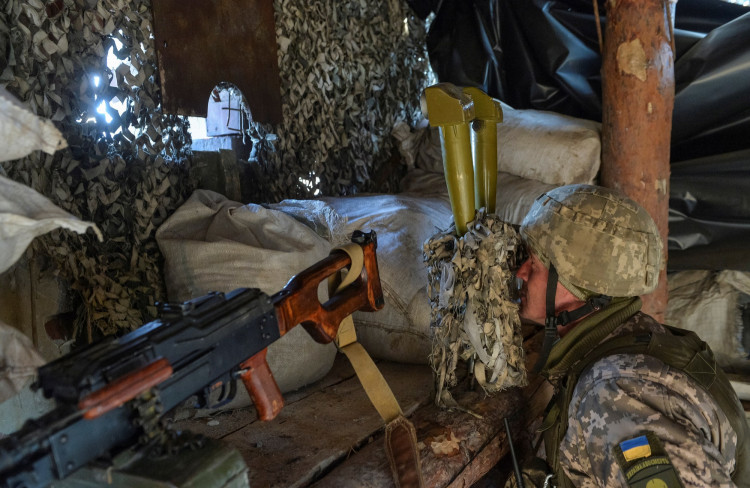Russia and Ukraine agreed to an unconditional ceasefire in eastern Ukraine Wednesday. The agreement comes after negotiators from both countries held talks in Paris to find a peaceful resolution to the conflict.
The talks were held at the Elysee Palace utilizing a so-called Normandy Format. Russia and Ukraine negotiated with representatives from France and Germany present. Negotiators finally agreed that a ceasefire must be observed while they conduct more talks to resolve the situation.
Tensions between Ukraine and Russia have escalated in recent weeks as Russian troops and NATO forces continue to build up in the region. Russia's buildup of forces near its fellow former Soviet republic has sparked fears of an invasion.
Russia's chief negotiator, Dmitry Kozak, said he had agreed to a ceasefire and to continue talks with Ukraine. Western powers, including the U.S., have pushed for a diplomatic solution to ease tensions between the two nations. Kozak said that even if there are still discrepancies between the two nations, a truce has been reached.
Kozak said the truce would hold as long as the armed forces of Ukraine and the Donetsk People's Republic and Luhansk People's Republic - both eastern separatists - abide by their obligations.
Ukraine's chief negotiator, Andriy Yermak, said that all parties at the meeting in Paris supported the unconditional ceasefire. He added that Ukraine is ready to talk at any time to prevent a war. Yermak said the talks in Paris indicated a "very positive signal" that would hopefully lead to the end of the conflict. He admitted that while the talks were "substantial," it was "not an easy discussion" to have.
Yermak said there is still a lot of work to be done, and Ukraine is adamant about stopping a war and de-escalating tensions around the Ukrainian border. The negotiators from Ukraine and Russia are expected to hold further talks early next month in Berlin.
While a ceasefire has been called, there are still as many as 100,000 Russian troops stationed at the Ukrainian border. Despite warnings from the U.S. and European leaders, Russian President Vladimir Putin has yet to order a withdrawal of his troops.
In response to the military buildup, NATO had sent additional troops and military equipment to Eastern Europe, stating that it was preparing for an imminent Russian invasion of Ukraine. Russia has repeatedly denied that it is planning to invade Ukraine, reasoning that it is building up troops as a response to NATO supplying Ukraine with weapons and military training. Russia claims that NATO's actions are a threat to its national security and its western flank.





